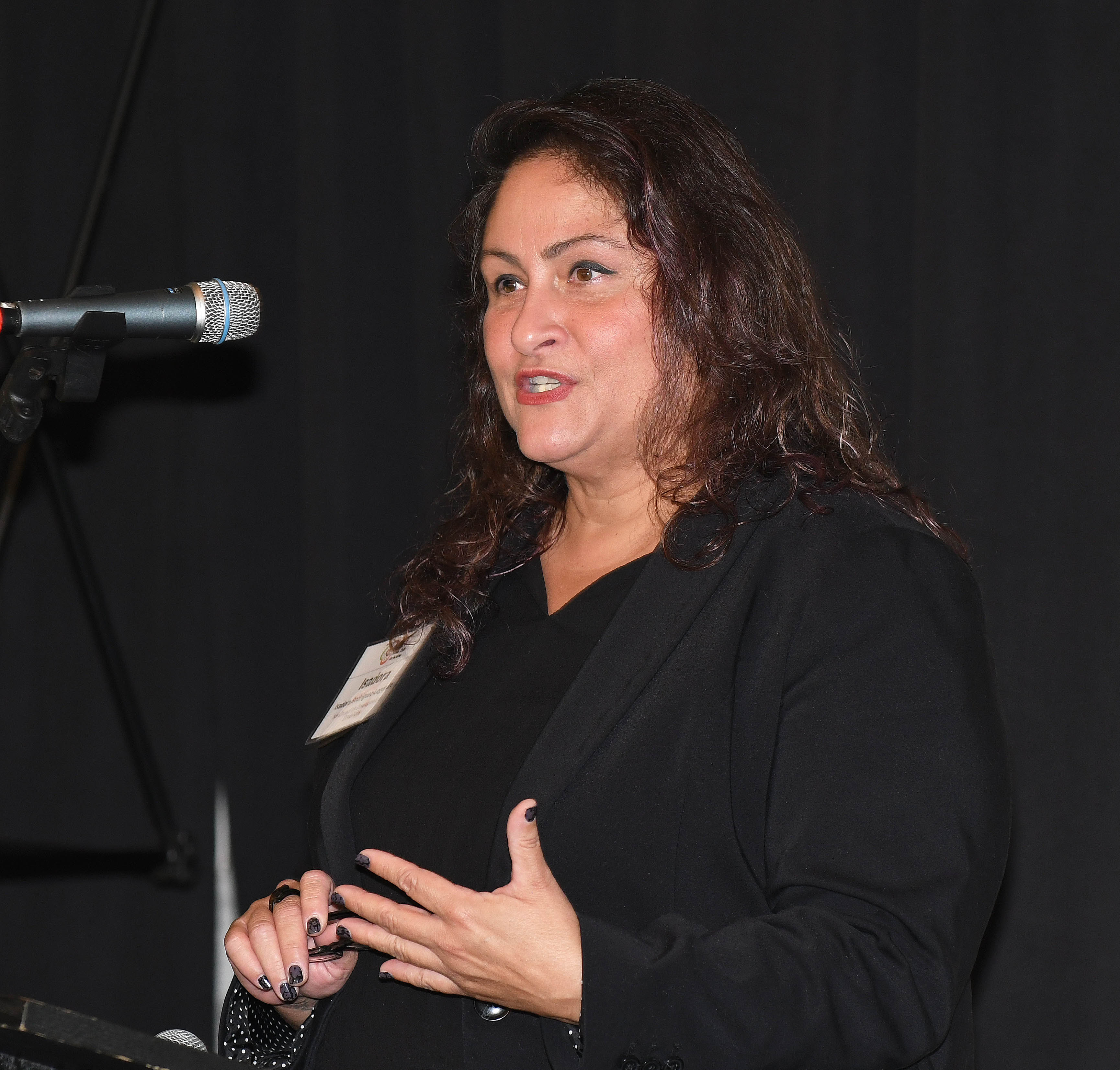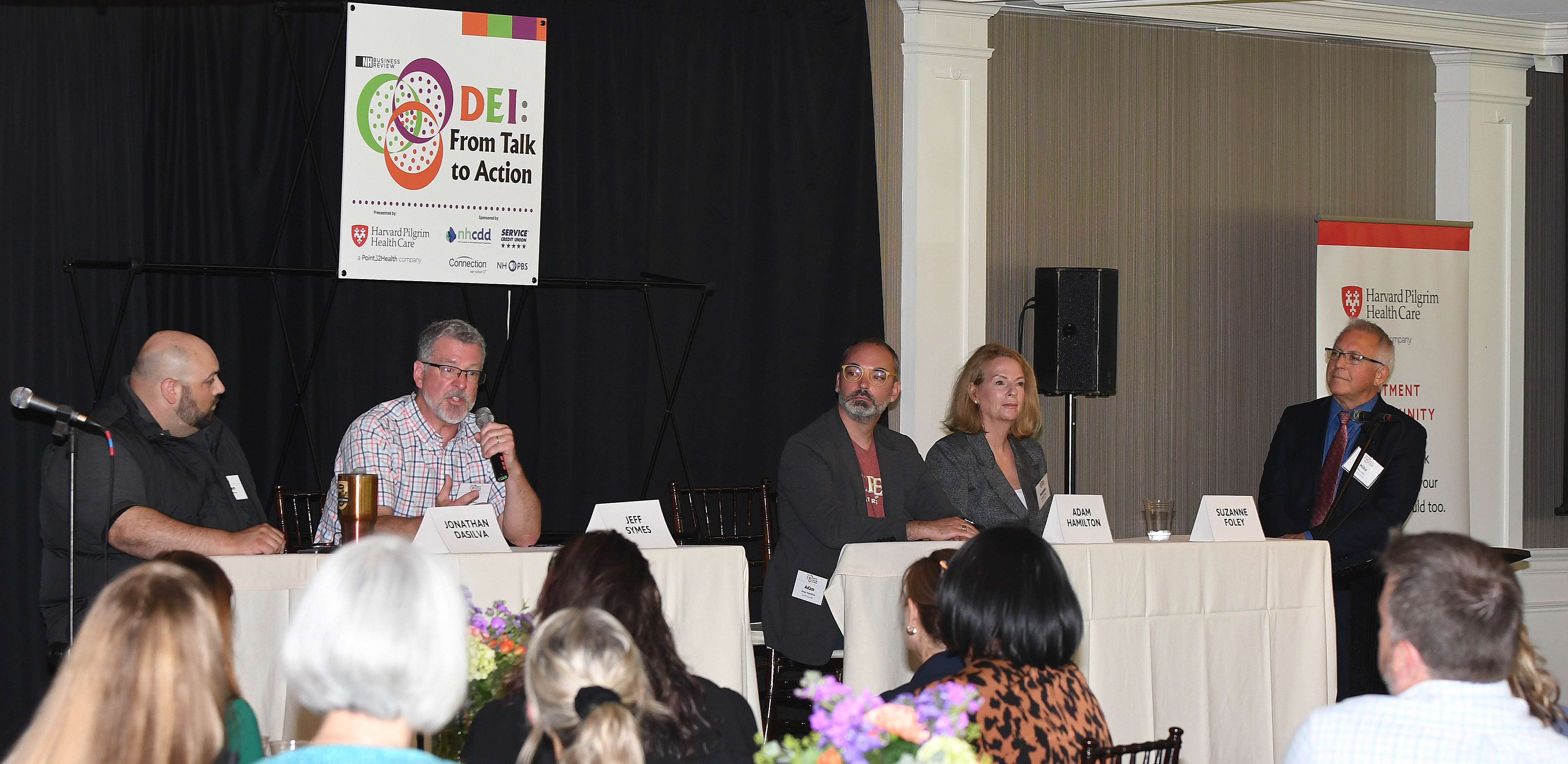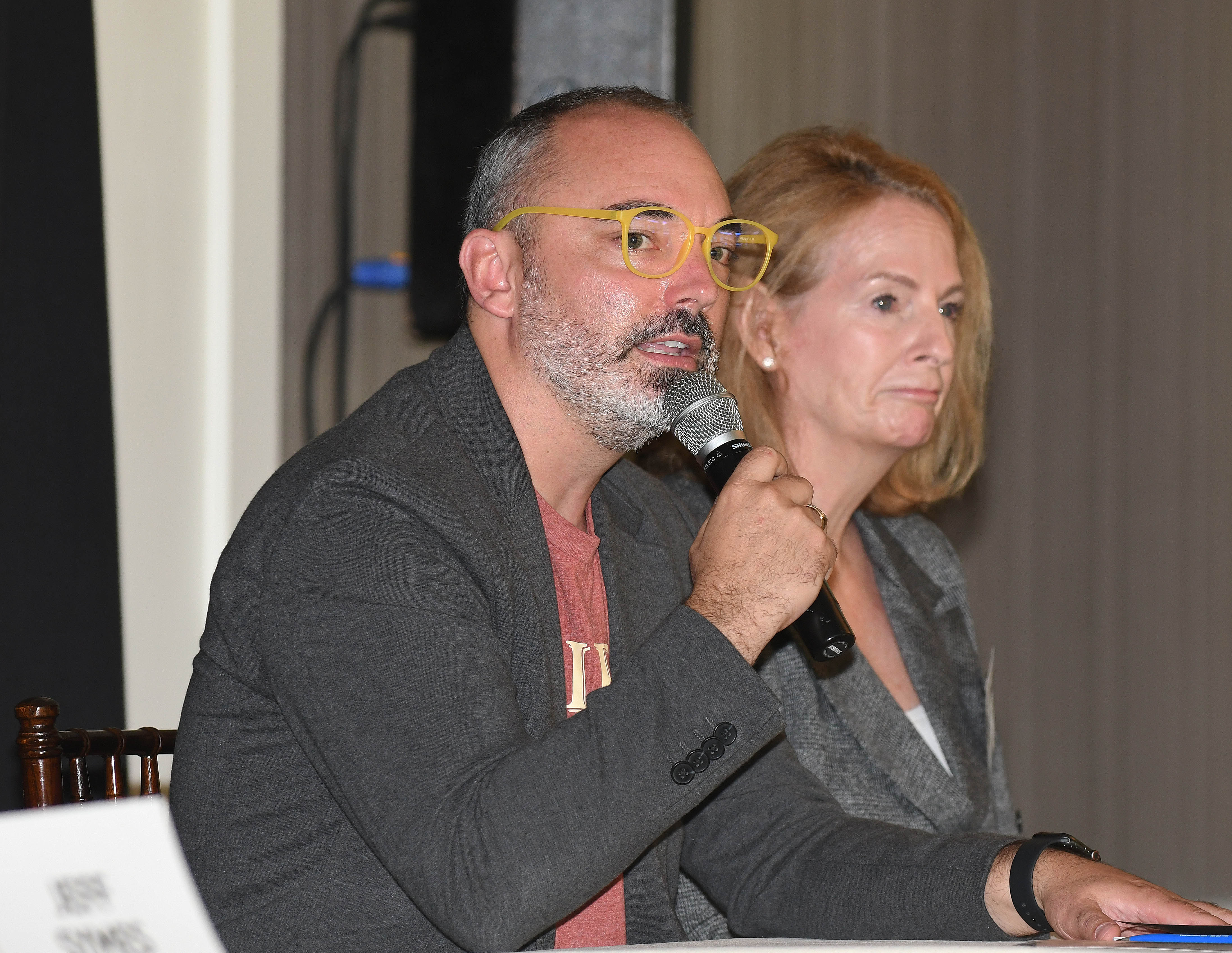Hiring employees with disabilities

During her presentation, Isadora Rodriguez-Legendre, executive director of the NH Council on Developmental Disabilities, talked about caregivers of people with intellectual disabilities. (Photo by Jodie Andruskevich) Shire’s Naturals did not intentionally seek people with disabilities to work for the Peterborough plant-based food company. Many of the workers who have proven to be a strong fit for the company happen to have autism.
“Everyone has something to give, and that’s the philosophy that we live by at Shire’s,” said Adam Hamilton, the company’s co-founder and chief operating officer. “When we seek out individuals, we evaluate them based on what they can bring to the team.”
Hiring employees with physical and intellectual disabilities requires resilience over resistance, said several employers and disability consultants at NH Business Review’s annual DEI: From Talk to Action seminar.
The event welcomed eight speakers and panelists to the Manchester Country Club in Bedford on Sept. 19 to share their experiences of weaving disability inclusion into the workplace, which they said can help rather than hinder companies if managed effectively.
Shire’s Naturals was recently recognized by the nonprofit New Hampshire Businesses for Social Responsibility for its inclusive environment for autistic workers. The food company’s hires of those with physical disabilities have led to improved safety around chemicals on the facility floor after Hamilton and Joshua Vasquez — his husband and the founder of Shire’s — were receptive to suggestions from staff, Hamilton said during a panel discussion.
Benjamin Adams, director of workforce development and youth transitional services at Easterseals NH, said people with disabilities can better maintain jobs when managers tailor their relationship to meet the needs of both parties.

Jeff Symes, co-founder of Unified + Inclusive Arts, said his organization connects people with and without disabilities to forge creative expression. The panel at DEI: From Talk to Action forum on Sept. 19 also included, from left, Jonathan DeSilva of CVS Health, Adam Hamilton of Shire’s Naturals and Suzanne Foley of Port City Pretzels. (Photo by Jodie Andruskevich)
“It means (employers) get away from the standard front-door approach where you post a job, you get multiple applicants, maybe they complete a pre-employment assessment. Then you do that interview and select who you want to hire,” Adams said during a talk that preceded the panel. “It doesn’t work for a lot of individuals with disabilities; they struggle with it.”
Adams instead encouraged companies to collaborate with job placement specialists involved with workers with disabilities, allowing them to review job listings and observe the duties of different open positions.
He stressed that this requires time and effort if seeking to hire workers who may be neurodivergent, or who have physical differences from their co-workers, but notes it can create a more efficient organization by having more people to carry out more tasks.
Jeff Symes, co-founder of Unified + Inclusive Arts, who joined Hamilton on the panel, said he’s experienced the same in his Nashua-based initiative to bring creative expressions like dance, music and visual arts to those with disabilities.
“There are going to be plenty of times where that person with a disability is the teacher,” Symes said. “We spend so much time trying to teach skills to people with disabilities and make them adjust or function into these different environments. But there’s understanding when we need to sit back, listen, watch and adjust to them.”
Some people with disabilities, like Randy Pierce, say they can adapt to life with their condition while simultaneously supporting others like themselves and educating the public. After he became blind in both eyes from a neurological disease in 1989 at age 22, Pierce said he faced an initial battle of acceptance before turning to advocacy work and motivational speaking to grow stronger from his loss of sight.
“If you don’t believe in yourself, or don’t believe in what you’re trying to accomplish or promote, it’s hard to succeed,” said Pierce, delivering the event’s keynote. “But I also want to highlight that it isn’t magic. You have to do some work; you have to do some problem-solving.”
He’s now the CEO of Future In Sight, long known as the New Hampshire Association for the Blind, and previously led a nonprofit he founded, 2020 Vision Quest, to aid students financially with vision services while encouraging them to achieve their potential.
To demonstrate his potential and cap off his story, Pierce shared a video of his 2015 run through the Tough Mudder challenge, an obstacle course testing strength, stamina and mental fortitude with jumping, trapeze swinging and plunging 25 feet down into muddy water. His successful attempt saw him join the 10% of competitors who managed to ring a bell at the finish line.

Adam Hamilton of Shire’s Naturals and Suzanne Foley of Port City Pretzels have made hiring people with disabilities part of their regular employment practices. (Photo by Jodie Andruskevich)
Panelists, in turn, were asked how they tell their stories of their careers.
Suzanne Foley, the founder and CEO of Port City Pretzels, said it took an enthusiastic nudge from her employees with disabilities, and the guidance of a New York marketing firm, to advertise her company, which had remained quiet about its origins within its first few years of operations after 2015. Her company employs a majority of staff who are disadvantaged and disabled, but she says they all are passionate about their roles.
“I have 36 employees, and probably 34 of them want to work more hours than I can give them,” Foley said. “Because they receive benefits, they’re only allowed to work so many hours, so we have to accommodate that. It works great because they can only work so many hours, then we’ll bring in somebody else for the second half of the shift.”
This drive, Foley said, is strengthened by finding the right managers to help teach and supervise staff to the best of their abilities.
“My mission is to sell pretzels, but this is also my mission,” Foley said.
Even on the opposite end of business enterprise in a corporation, panelist Jonathan DaSilva agreed with approaches like Foley’s when it comes to job placement. He’s the senior manager of workforce initiatives in New England at CVS Health.
“We did a work-from-home remote training program where we trained administrative assistants,” DaSilva said. “For one person who came through our program, driving wasn’t an option because she was blind; working from home was the only option.”
In this scenario, DaSilva said he asked her what position would reliably suit the new hire’s situation rather than pushing a list of jobs, which led to a successful place for her.
“It’s all about meeting people where they’re at,” DaSilva said.
Also featured at this year’s event was Steven Aylward, a vocational rehabilitation counselor in the NH Department of Education, who led a presentation describing his agency’s role in helping Granite Staters with disabilities become and remain employed. Isadora Rodriguez-Legendre, executive director of the NH Council on Developmental Disabilities, followed with a presentation on caregivers of people with intellectual disabilities.
‘There are going to be plenty of times where that person with a disability is the teacher,’ said Jeff Symes, co-founder of United + Inclusive Arts.